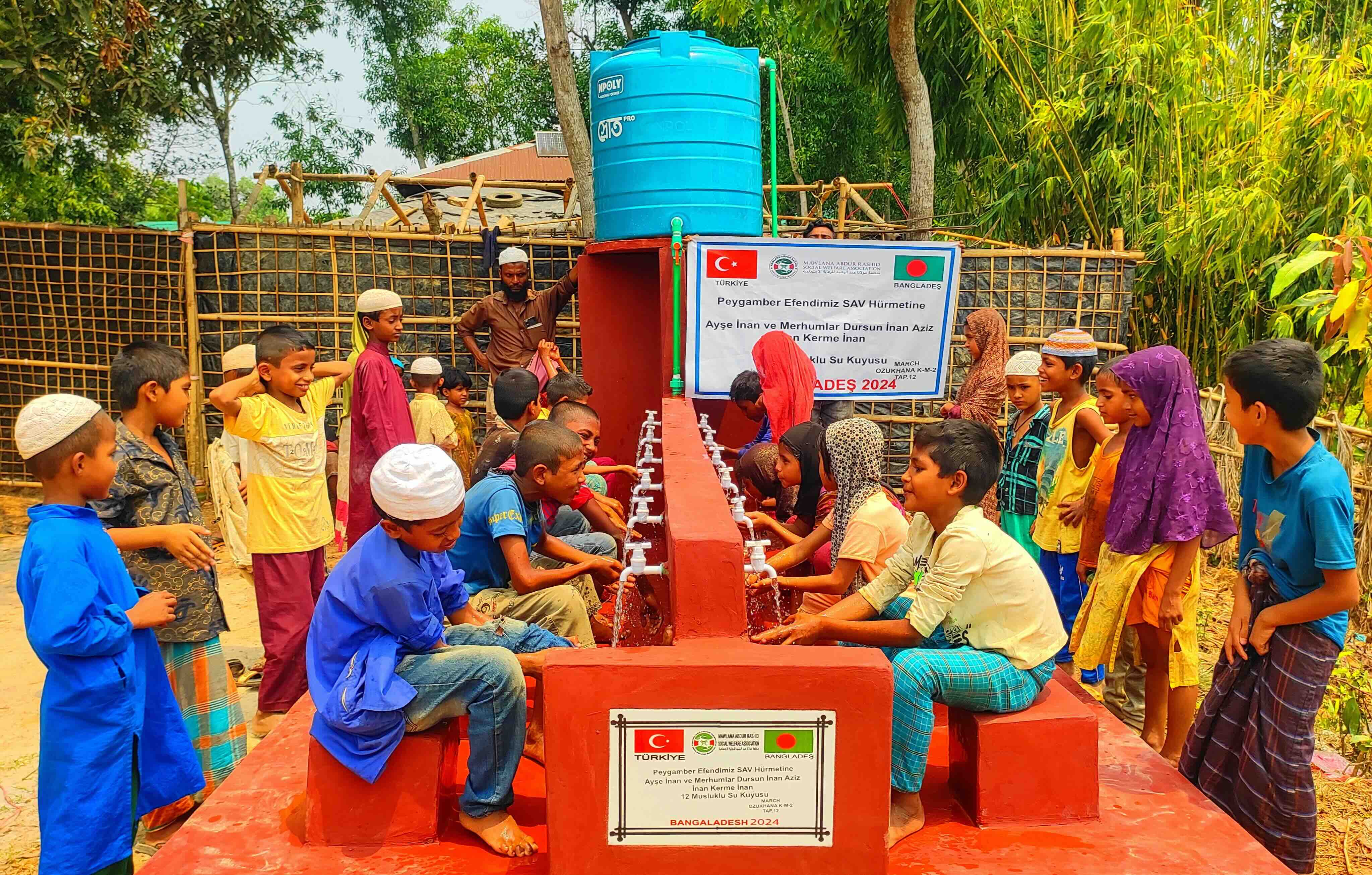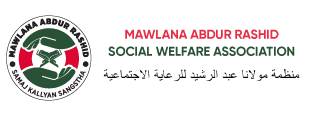
Water well with 12 taps (Wazukhana)
The Clean Water Well Project in Bangladesh
In the heart of Bangladesh, where access to clean water remains a critical issue, a transformative initiative has taken root—a Clean Water Well Project that promises to significantly impact the lives of local communities. This project, centered around the installation of 12 new water taps, represents a beacon of hope and progress in a region grappling with water scarcity and contamination.
The Challenge
Bangladesh, despite its abundant water resources, faces significant challenges with water quality and access. Many rural areas still rely on unsafe sources of water, leading to health issues and impacting the quality of life. Contaminated water sources are linked to various waterborne diseases, posing serious health risks, especially to children and the elderly.
The Solution: A Network of Clean Water Taps
The Clean Water Well Project aims to address these challenges by establishing a network of 12 new water taps across multiple communities. This initiative involves drilling wells to reach underground aquifers, ensuring a reliable and clean water supply. Each well is equipped with multiple taps to serve a larger number of households efficiently.
Implementation and Impact
- Site Selection and Drilling: The project begins with identifying optimal locations for drilling, based on factors such as water table levels and community needs. Once selected, the drilling process is carried out using state-of-the-art technology to ensure the extraction of clean and safe water.
- Installation of Taps: After successful drilling, the installation of taps is completed. Each well is designed to accommodate multiple taps, providing easy access to clean water for various households and reducing the time and effort required to fetch water.
- Community Engagement and Training: To ensure the sustainability of the project, local communities are actively involved in the process. Training sessions on the maintenance of the wells and proper sanitation practices are conducted. Community members are encouraged to take ownership of the project, ensuring that the taps remain functional and well-maintained.
- Health and Hygiene Education: Alongside the installation of the taps, educational programs on health and hygiene are implemented. These programs focus on the importance of using clean water, proper handwashing techniques, and overall hygiene practices to prevent waterborne diseases.
Positive Outcomes
The introduction of these 12 water taps has already begun to yield positive results. Access to clean water has led to a decrease in waterborne diseases, improved overall health, and enhanced quality of life for the local population. Children can now spend more time in school rather than fetching water, and families can focus on other productive activities.
Sustainability and Future Plans
The success of the Clean Water Well Project demonstrates the potential for similar initiatives to make a significant impact in areas with water access issues. Plans are underway to expand the project, with additional wells and taps in other regions of Bangladesh where the need is greatest. Continued community involvement and education remain key to ensuring the long-term success and sustainability of the project.
Conclusion
The Clean Water Well Project with 12 taps in Bangladesh stands as a testament to the power of community-driven solutions to critical problems. By addressing the fundamental need for clean water, this project is not only improving health and well-being but also empowering communities to build a better future.
